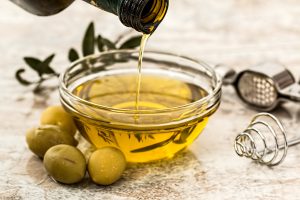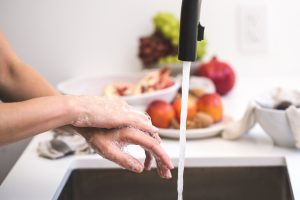
Time and time again, we will tell people not to pour bacon grease or cooking fat down the drain. Despite being a liquid, any type of grease or oil will eventually cause a costly drain clog for your home. Oils and grease act in different ways to hurt your pipes, but the end result is the same: you’ll be calling a plumber in Brevard County to get you out of a greasy-pipe pickle. So, why does this happen? What can you do as an alternative to keep from hurting your pipes (and the environment)? Anchor Plumbing is here to answer your questions!
Why You Can’t Pour It Down The Drain
Pouring bacon grease, cooking fat, olive oil, or other oils down the drain is a fast and easy way to get rid of it. However, it’s a bad solution to your problem. If it’s grease, it’ll cool as it runs down the pipes and the grease with congeal partially and start to build up along parts of the pipe. Over time, the grease will create a massive clog that will require a professional to clean! If it’s an oil, like olive oil or vegetable oil, the same thing will happen as the oil floats through your drains, adding to the potential clog.

Cooking oils aren’t just bad for your pipes. They’re also bad for the environment as well. When you put the oils and grease from cooking into the sink drain, it also hurts the water supply and can be bad for the environment if it gets into local waterways as well.
Solutions That Won’t Help
If you have poured grease down the drain in the past or do it regularly, you might be worried now. Don’t worry, there are solutions that are cost-effective, especially if you catch your mistake before you have an oil-related clog in your pipes. However, there are a few things that you should NOT do. Here they are.

Don’t buy a drain cleaner, whether it says it’s for grease or not. Drain cleaners are corrosive and can harm your pipes if you use them regularly. They also are not usually very effective, so it’s not worth it to potentially damage your drains.
You also should not pour dish soap and hot water down the drain either, which is a solution we have seen before. The hot water starts out effective in breaking up fats, grease, and oil, but it cools in the pipes and causes the blockage to reform and harden further down the pipeline instead of being removed completely. This will just make the problem worse instead of better.
What You Should Do Instead – How to Dispose of Oil

Don’t pour it down the drain, even if it’s only a little. Even a small amount of cooking fat or oil can do major damage over time to your pipes. Instead, you can either dump the extra fats or oil into a designated container (coffee can, old jar, milk carton, etc.) and throw it out, or you can reuse the oil and grease by straining it and storing it in the refrigerator. Many families save and reuse oil, but you can always dispose of it in the trash if that’s not your style. One way or another, never pour it down the drain!
Pipe Problems?
There are options if you’ve already poured grease or oil down the drain and want to start the repair process. Some people may have been pouring grease down the drains for years or may have just done it a few times. Our suggestion is to call a professional plumber in your area to come out and take a look. Some plumbers can do drain scoping to see how bad the problem is, and every plumber should be able to clean the oil, fat, grease, and debris build-up. Give Anchor Plumbing, an expert plumber in Brevard County, a call if you’re worried about the years of bacon grease that might be lurking in your pipes!

No Comments